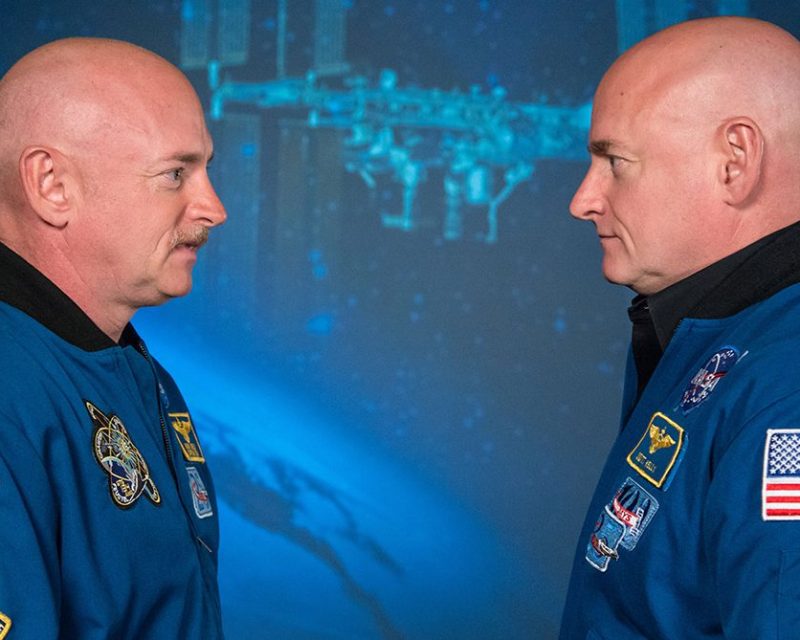
A year ago, twin astronauts Scott and Mark Kelly agreed to take part in a groundbreaking study (which NASA calls “The Twin Study”), testing the effects of space travel on human DNA. Some of the test results have been processed, and they reveal some unexpected genetic changes.
Due to the brothers’ almost identical genomes and similar life experiences, they were ideal subjects for this experiment, which required Scott to spend nearly a consecutive year in space; with measurements of his gene expression and other biological markers taken before, during, and after his mission. His brother Mark remained on Earth.
Although these are early test results—that may not be generalizable to other space travelers—researchers were surprised to find that Scott’s telomeres, the caps on the ends of chromosomes, grew longer while he was in orbit. Since telomeres generally shrink over the course of a lifetime, and the stresses of spaceflight were thought to accelerate that process, these results threw NASA for a loop.
It’s also worth noting that telomere lengthening has been linked to some disease processes and pathologies, hence the researchers’ concern. Thankfully, Scott’s telomeres shrank back to normal once he returned to Earth.
The researchers also found a decrease in Scott’s DNA methylation, which is the process by which our genes deactivate sections that don’t need to be copied. By contrast, Mark’s DNA methylation increased over that period of time on Earth.
The full results are still being processed, but information about how space travel affects molecular change within the body is useful for refining pre-flight medical testing and screening, and for predicting how the human body will react to prolonged time in space (like, say, flights to Mars).
—RealClearLife Staff
This article was featured in the InsideHook newsletter. Sign up now.